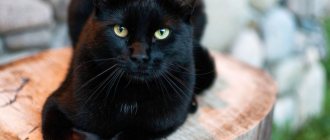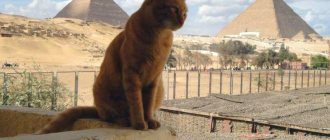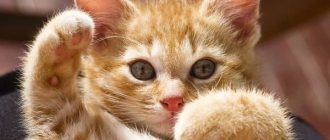Ancient Egyptian Names – These names were used in Ancient Egypt.
Ancient Egypt was a civilization of the ancient world that existed in northeast Africa along the lower reaches of the Nile River. The period of existence of Ancient Egypt is from the middle of the 4th millennium BC. e. to the 4th century AD e.
The history of Ancient Egypt spans approximately 40 centuries and is divided into the pre-dynastic period, the dynastic period, the Hellenistic period (influenced by the Greco-Macedonian culture) and the Roman period (within the ancient Roman state, as a province of the Roman Empire).
Ancient Egyptian names
Names in Ancient Egypt , like those of other peoples, emphasized the individuality of a person, his character and appearance, his devotion to one or another god, the names of animals and plants, the names of objects, professions, as well as names indicating origin from a particular area.
For example, Rahotep - Ra is satisfied, Nefertiti - beautiful.
The most common names were those that included the names of the most important deities: Ptah, Ra, Amon, Horus, Isis, Montu, etc. Such names reflected a person’s hope for God’s favorable attitude towards himself. For example, Djed-Amen-iuf-ankh (“Amon said: he will live”).
There were prophecy names - this was the answer of the oracle deity to the parents’ request.
There were spell names that protected a person from negative influences, and the deity was the protector from them. For example: Chai-Ise-Imu (“may Isis seize them”).
Some names were used equally for women and men, they differed in the hieroglyph at the end.
As a rule, the Egyptians had two names, both personal. The Egyptians did not have surnames.
Some names of Egyptian gods and Egyptian pharaohs can be very useful for those involved in esotericism or the occult. These names may carry a program of increased intuition, which can help read information from subtle planes. Moreover, this information may contain hidden or lost data about the magic of past civilizations, and even about the technologies of past civilizations. Therefore, if you are interested in such things and, suppose, take one of the strong pseudonyms chosen from the names of Egyptian gods or pharaohs, then it is quite possible that a special program , which, like a radar antenna (dish), will perceive signals from the past, from ancient civilizations. Thanks to this, you will be able to obtain information that is not yet known or little known in the modern world. This pseudonym is a chance to come into contact with the knowledge of the ancients.
Read: Book “The Energy of the Name”
mystical meaning to names and words spoken aloud or written on papyrus They believed that if you know the secret name , you gain power over that person. If you write the name of an enemy, a predatory animal or an evil spirit on a pottery and then break it, you can kill the evil.
The ancient Egyptians received a secret name , which was kept secret so that no one could harm the person.
Ancient Egypt left a huge cultural heritage for world civilization.
Below we invite you to see a list of ancient and modern Egyptian names for boys and their meanings:
Beautiful Egyptian names. Ancient Egyptian and modern.
Meanings of male Arabic names:
Abdulalim Slave of the All-Knowing Abdulalily Slave of the Highest Abdulazim Slave of the Greatest Abdulaziz Slave of the Mighty, the Possessor of special greatness Abdulbari Slave of the Creator Abdulbasyt Slave of the Spreader, Bringing life to people Abdulfatah Servant of the Opener Abduljabar Slave of the Mighty Abdulgafar Slave of the All-Forgiving Abdulgafur Slave of the All-Forgiving Abdulhadi Slave of the One Who Leads the Right Path Abdulhafiz Slave of the Humiliating (those who does not submit to his law) Abdulhakk a true slave, which establishes the truth of the Abdulhakam, the slave of Judge Abdulhakim the slave of the wise Abdulkhalim of the slave of the affectionate, soft Abdulkhamid slave worthy of all Abdulhasib Slave takes into account everything, sufficient abduljalil of the majestic Abdulcadir Rabba Rogo Abdullatyf a good slave, gracious , Merciful Abdulmajid Slave of the Glorious Abdulmuiz Slave of the Giver of power, strength Abdulmutal Slave of the Highest Abdulmujib Slave of the Answering Abdulmatin Slave of the Strong, Durable Abdulmuhaymin Slave of the Protecting His creations Abdunnaser Slave of the Giver of help, victory Abdulkudus Slave of the Sacred, Purest from all shortcomings Abdulkahar Slave of the Lord Abdurrafi Slave of the Exalting of the Believers Abdur Rahim Rab The All-Merciful Abdurrahman The Slave of the All-Merciful Abdurrashid The Slave of the Guide to the Right Path Abdurrazak The Slave of the Creator of Good Abdussalam The Slave of the Peacemaker Abdurrauf The Slave of the Condescending, Tender, Merciful Abdulkhalik The Slave of the Creator Abdussabur The Slave of the Patient Abdussamad The Slave of the Eternal Abdussami The Servant of the All-Hearing Abdullah The Slave of God Abdushchakur The Grateful Slave of the Rewarder of His Slaves Abdut Avvab Slave of the Receiver repentance Abdulwadud Slave of the Loving Abdulwahid Slave of the One Abdulwahab Slave of the Giver Aban Old Arabic name Abbas the Severe Alabbas the Severe Abid Slave (who worships Allah) Azam Black Ashraf Noble Adel Just Afif Chaste, modest Ahmad Praiseworthy Akram Generous Ala Nobility Alyuddin Nobility of religion Ali High shenenny) Amin Faithful reliable, honest amir, emir anas people, prosperous ammar prosperous Anis close friend Aarif, well -informed Avad Avad Ayyub name Ayman Lucky Azhar name Azhar decisive Abu Bakr name of the associate of the Prophet Muhammad (CAS) Abulheir who creates a good -good AASIMI defender nation
Bakhir Dazzling Bach Beautiful, beautiful Bishr Joy Bashaar Bringer of good news Basyl Brave Bassam Smiling Baasim Smiling Bilal Name of the first muezzin
Daoud Name of the Prophet
Zulifkar The name of the sword of the Prophet, peace be upon him
Fadl Venerable Fadlullah Honor God Fadi Delivering Thessal Determined Farid Rare Faris Horseman, strong Faris Insight Fuad Heart
Ghalib the Victorious Ghazi Warrior
Hadi Guiding the straight path Hamid Praising God, loving God Hamza Lev Hani Happy, contented, admiring Humam Brave, noble Haris Plowman (ancient Arabic name) Harun Name of the prophet Hassan Beautiful, good Hashim Name of the grandfather of the Prophet Muhammad (SAW) Hassan the Beautiful Hatim Judge Haitham the Hawk Haashim Generosity Huzayfah Old Arabic name Husam Sword Husamuddin Sword of faith Ihsan Sincerity Hussein The Beautiful Hud Name of the prophet
Ibrahim The name of the prophet Idris The name of the prophet Imad Support Imran The name of the prophet Irfan Gratitude Isa The name of the prophet Ishak The name of the prophet Isam Protecting, protecting Ismail The name of the prophet Izzuddin The greatness of faith
Names of Egyptian gods
Amon
The ancient Egyptian god of the Sun, king of the gods and patron of the power of the pharaohs.
Amon-Ra
In Thebes, Amun was the god of the wind. After the unification of Upper and Lower Egypt, the cult of Amun gained strength, merged with the cult of Ra, and after that Amon-Ra became the supreme god of Egypt.
Anubis
An ancient Egyptian deity with the head of a jackal and the body of a man, a guide to the dead into the afterlife.
Apis
Sacred bull of the city of Memphis, god of strength and fertility.
Arueris
Egyptian deity, the elder Horus, called Apollo.
Aten
Sun God. During the reign of Pharaoh Akhenaten, Aten was the only god of the Egyptians. It was believed that Aten created all things and ruled the whole world.
Atum
God of the setting sun. He was considered the leader of the nine great gods who were worshiped in Lower Egypt.
Read: Choosing a name for an adult. Name change (Consultation sample)
Bas
The god of dances and feasts, whom the people worshiped in Ancient Egypt. He was depicted as a dwarf with a wide bearded face, dressed in a lion's skin. Bes protected people from snakes, scared away evil spirits, helped during childbirth, protected the Egyptians from various troubles and was revered throughout the country as the patron saint of the family. Many amulets in the form of Bes figurines have been preserved.
Varsutin
God of the Moors.
Geb
One of the nine great gods, who was revered in Heliopolis (City of the Sun in Lower Egypt). Geb was the god of the Earth.
Gore
Egyptian god of the sky and the rising sun in the guise of a falcon. He was depicted as a man with the head of a falcon or a winged sun. Son of Osiris and Isis.
Min
God of male fertility, closely associated with Amon-Ra. Ming patronized the hunter-gatherer tribes that lived in the desert east of the Nile.
Read: Selection and diagnosis of middle names
Montu
God of war with the head of a falcon. His sacred animal was the Buhie bull, which was considered the “soul of Ra.”
Nefertum
Son of Ptah and Sekhmet. He was depicted as a bearded man with a curved sword in his hand and a lotus flower on his head.
Nun
The god of primordial chaos, the personification of the boundless abyss of water that existed at the beginning of time, before the creation of the world. From the depths of Nun, Ra was miraculously born, becoming the “father of the gods.”
Read: Compatibility of surname and date of birth
Osiris
The god of fertility, who taught people to cultivate the land and worship the gods.
Ptah
The god of crafts and art, truth and justice, who was depicted with a staff in tight-fitting, long white robes. He was credited with the role of creator of the world and creator of all gods. Ptah's wife is the goddess Sekhmet.
Ra
Ra (ancient Egyptian “Sun”) is the ancient Egyptian sun god, creator and supreme ruler of the world. The center of the cult is the city of Heliopolis. Depicted with the head of a falcon, crowned with a solar disk or cobra. Ra was worshiped as the supreme god, the creator of other gods and people. The pharaohs were considered the sons of Ra.
Sarapis (Serapis)
Hellenistic deity that appeared at the end of the 4th-3rd centuries. BC. based on the synthesis of the cults of the Egyptian god Osiris-Hapi and the Greek Zeus, Dionysus and Pluto. Deity of the sun, fertility and the underworld. He was also considered a healing god, a savior from misfortune.
Read: Selecting a middle name (secret name and pseudonym)
Sebek
An ancient Egyptian god in the guise of a crocodile, considered the lord of the waters, the source of fertility, and the protector of the supreme deity. He was depicted in the guise of a crocodile or a man with the head of a crocodile.
Set
The warrior god who protected Ra, as well as the god of thunder, storms, and desert.
Sokar
God of vegetation and patron of the dead. He was depicted as a mummy with the head of a falcon. Sokar guarded the gates of the underworld.
That
Ancient Egyptian god of wisdom, magic, the moon, patron of eloquence, inventor of writing. Depicted with the head of an ibis. He helps Osiris administer justice in the afterlife by recording the readings of the scales on which the soul of the deceased was weighed. The center of the cult is the city of Hermopolis. In the 1st millennium BC. identified with the Greek god Hermes.
Upuat
God who accompanied the soul of the deceased to the afterlife. Depicted with the head of a jackal or wolf. Sometimes identified with Anubis.
Hapi
God of the Nile.
Read: Compatibility of name and date of birth (with examples)
Khonsou
Egyptian god, revered in Thebes as the son of Amun-Ra and Mut. Sometimes he was identified with Thoth, which is why he was called the “scribe of truth”, and was considered a healing god. He was depicted as a man with a crescent moon and a disk on his head.
Khnum
God the potter who created people from clay on a potter's wheel. Khnum is depicted with the head of a ram.
Shu
The god of air and sunlight, subsequently received the character of a deity of the scorching midday sun. The first generation of Ra. He separated Geb and Nut, who were united in a conjugal embrace. This is how Earth and Sky were formed.
I
The ancient Egyptian god of the moon (crescent), worshiped in the city of Hermopolis along with Thoth. The sacred animal is the baboon.
Egyptian male names
Adjo - treasure Azibo - earth Azizi - precious Akiiki - friendly Akil - intellectual Ako - weary Akenaten - the one who works for Aten Akenaton - the one who works for Aten Amen - hidden Amenemhat - Amun the advanced Amenemhet - Amun the advanced Amenhotep - the world of Amun Amon - hidden Amun - hidden Ankenaten - the one who works for the Aten Ankenaten - the one who works for the Aten Anpu - the royal child Anum - the fifth born Ankher - the distant Aten - the solar disk Atsu - the twin Atum - the whole Ahmoz - the son of Ia Ahom - the eagle Ashei - plentiful
Babeyfmi - beloved by father Badru - born on the full moon Bakari - noble oath Bankole - help me build a house Baraka - blessing, gift Baruti - teacher Benayp - iron Bes - joy-bringer Biti - king of the northern Bomani - warrior Bubu - light-giver Buziris - temple of Osiris Buihu - best
Gahiji - hunter Gyasi - wonderful
Dakaray - happy Jabari - brave Jafari - stream Jahi - honored Jibeid - associated with the royal family Jumoke - beloved by all Donkor - humble
Sacher - flower Zuberi - strong Zuka - grave
Ia - moon Iabi - weak Ialu - dreams Idogb - twin brother Iknaton - the one who works for Aton Imenand - hidden Imhotep - entering the world Ini-herit - shortening the distance Issa - god saves Donkey - laughter
Kazia - the departing Cambyseth - the handsome king Caroan - the one who prevents the evil eye Kafiri - the hill Kahotep - the peaceful essence Keb - the father of the earth Keimnvati - the dark rebel Keifl - dying in the name of Kemnebi - the black panther Kemoziri - the black Osiris Knemu - the modeling Kontar - only the son of Kosei - the lion Kuaashi - born on Sunday Canty - leader
Lisimba - lion Lusidge - locust
Madu - from the people Maskini - poor Matsimela - root Mbizi - water Mdjay - soldier Menes - reed Menetnasht - power Mensa - third-born Meti - fair Minka - justice Mozeji - tailor Mosven - illuminating skin Msra - sixth-born Mudada - supplier Mukhwana - twin Mhotep - world Mhey - struggle Mshey - traveler Myum - fountain
Set - blinding Najja - second born Nakhti - powerful Ngozi - blessed Nebi - panther Nebibi - panther Nebtoi - lord of the world Neri - gypsy Nehru - born of the day Nef - spirit Nefer-kheperu-ro - the one who works for the Aten Nizam - disciplined Nkozi - Nkrumah rules - ninth born Nkuku - rooster
Oan - quality Oba - holder of the scepter, king Odayon - one of the twins Odji - evil Ozaz - beloved of god Ozahar - god hears me Osiris - something that was done, a product Oi - glory Okpara - born first Omari - high born Otta - third born
Paki - witness Panahazi - barbarian Ptah - more open
Ra - the sun Razui - a dream Rameses - the son of Ra Rashidi - the wise Re - the sun Remmao - a rich man Runichera - the destroyer Ramss - the son of Ra
Sabola - pepper Sadiki - faithful, devoted Sekani - laughter Semni - affirming Set - blinding Seti - from the set Sefu - sword Sinyukh - son of Plato Sokkvi - small, stupid Sudi - lucky Sutekh - blinding
Thabit - strong Teremun - beloved by his father Tehuti - balance-preserver To - lion Thor - king Thoth - balance-preserver Tumeini - hope Tutankhamun - image of the life of Amun Thutmose - born
Ubaid - faithful, devoted Umi - life Unika - shining Uomukota - clumsy Uoti - rebel Uohakvi - small, stupid Uohashem - small, stupid Ur - big Usi - smoke
Fansani - request Fenuku - late born Phinehas - mouth of the snake
Haji - born during the pilgrimage Khazani - handsome Hakizimana - god saves Halfani - there will be a rule Hamadi - praised Harakhti - two horizons Heru - distant Holdun - immortal Hondo - war Horus - distant Hey - crowned
Chaik - the power of the god Chenzira - traveler Chibail - relative of Chigaru - dog Chizizi - secret Plague - rich
Shenti - hairy Shushu - braggart
Ebo - born on Tuesday Esker - something that was done, a product
Yafeu - brave Yahya - given by God
Names of Egyptian goddesses
Bastet
The ancient Egyptian goddess of love and fun was depicted as a cat or with a cat's head.
Isis
Goddess of love and fate, daughter of Heb and Nut. Isis is often depicted holding the baby Horus in her arms.
Maat
Daughter of Ra, goddess of truth and justice. Maat monitors the correctness of religious rituals and monitors the behavior of people.
Meritseger
The local goddess of Thebes, depicted as a snake with the head of a woman. She was kind to the righteous, and punished sinners with a poisonous bite.
Meskhent
The goddess of childbirth, who helped a woman endure pain during childbirth and predetermined the fate of the newborn.
Read: Pharaohs. Names of Egyptian pharaohs
Mut
Mother goddess depicted with the head of a kite. Having married Amun-Ra, she became the queen of heaven.
Nate
Ancient Egyptian goddess, creator of the world, patroness of hunting and war in the city of Sens. The cult of Neith was also widespread among the Libyans. The goddess of handicrafts, according to some myths, weaved the world.
Nephthys
Goddess of the dead, wife of Set.
Nekhbet
Wife of the god Nile Hapi, patroness of Upper Egypt. Nekhbet protects the pharaoh and his children. Sometimes she was depicted as a female kite, spreading her wings over the head of the pharaoh.
Chickpeas
Goddess of the night sky, mother of the stars.
Renenet
Goddess, patroness of children. She gave them names, protected them from misfortune, and predetermined their fate.
Renpet
The goddess who controlled the flow of time. Every spring she heralded the coming of the new year and poured fresh strength into young people.
Read: Selecting a surname (sample consultation)
Selket (Serket)
Goddess, patroness of the dead, depicted as a scorpion. She helped her father, the god Ra, destroy his enemies. She was kind to people and healed them of their wounds.
Sekhmet
The fierce goddess of war, destroying the enemies of Ra. She was originally the love goddess Hathor. But when Ra sent her to destroy humanity, she turned into the warlike Sekhmet.
Seshat
Goddess of writing, keeper of the library of the gods.
Taurt
She patronized expectant mothers, which is why she was depicted with a rounded belly. Taurt treated infertility, helped women during childbirth, and made sure they had enough milk.
Tefnut (Tefnet)
Egyptian goddess of dew and heat. Tefnut was the first goddess created by Ra.
Hathor (Hathor)
Goddess of love and fertility. She was depicted either in the guise of a cow or as a woman, whose hair was decorated with a sun disk between the cow's horns. One of the myths tells how Ra sent Hathor to destroy humanity, and then this goddess turned into Sekhmet, the goddess of war and destruction.
You can see the list of names of Egyptian pharaohs here...
Oleg and Valentina Svetovid
Our email address
Go to all names
Go to Main page











